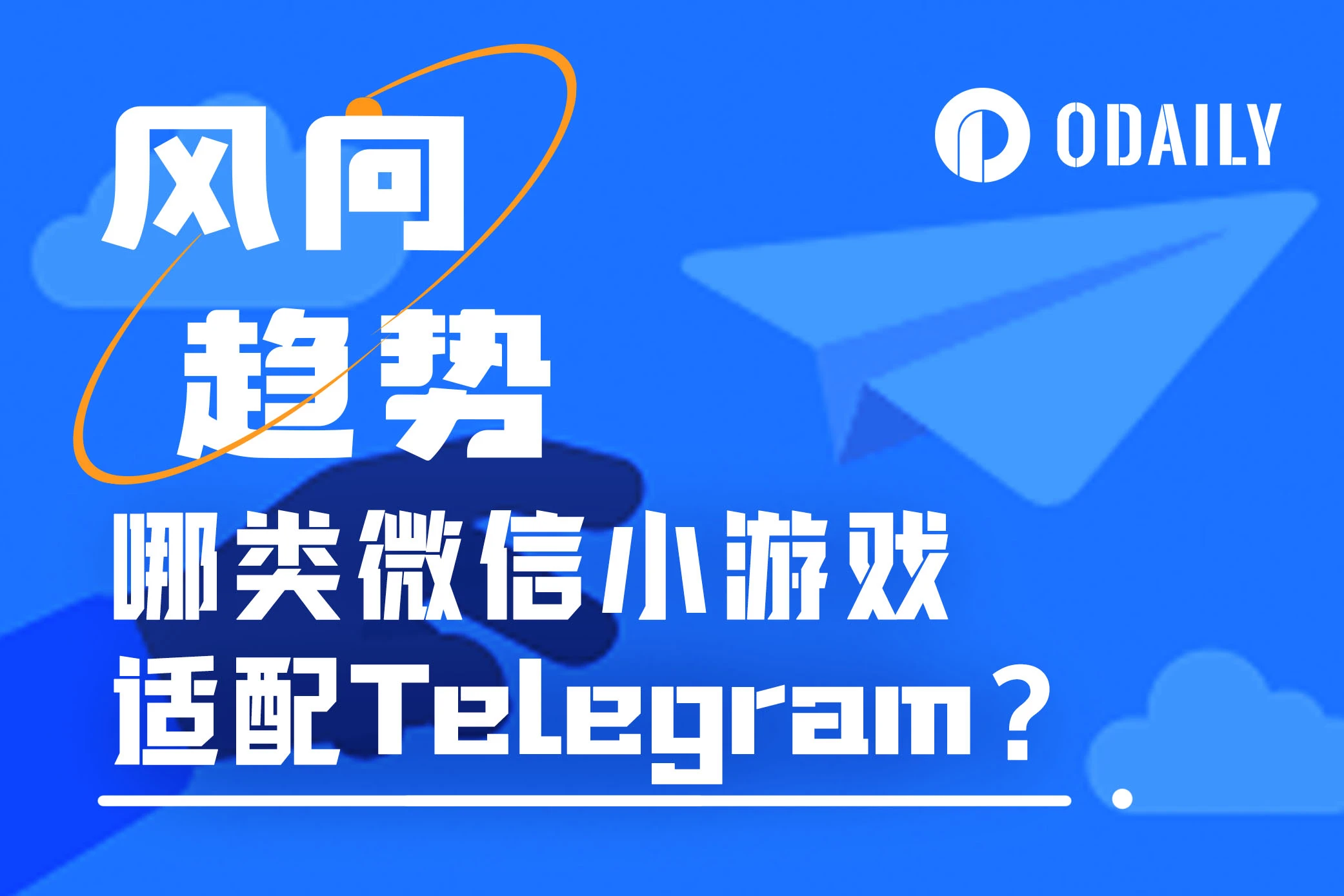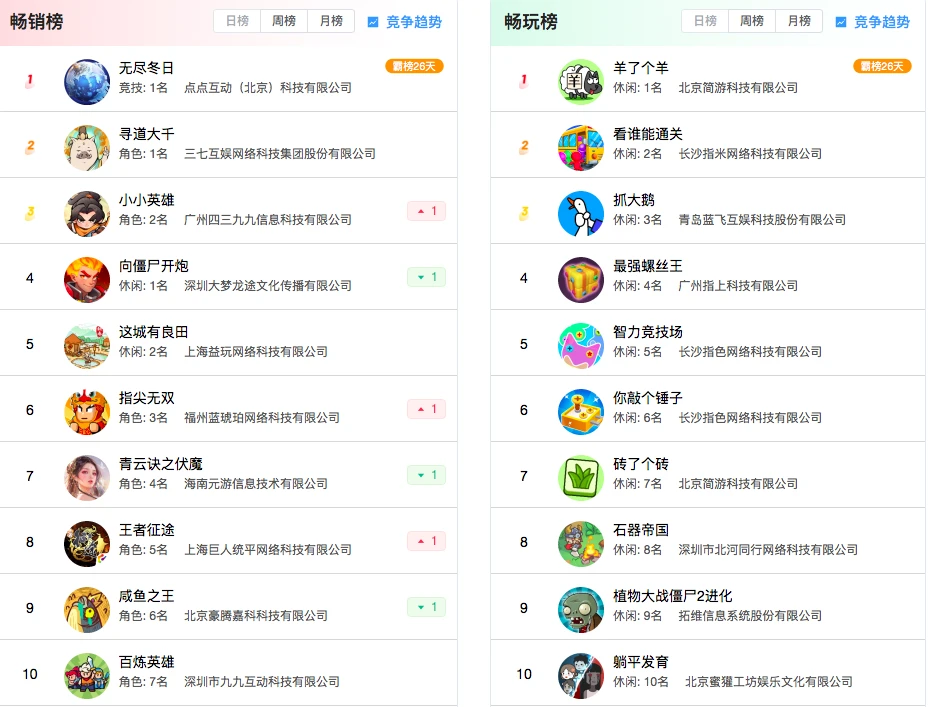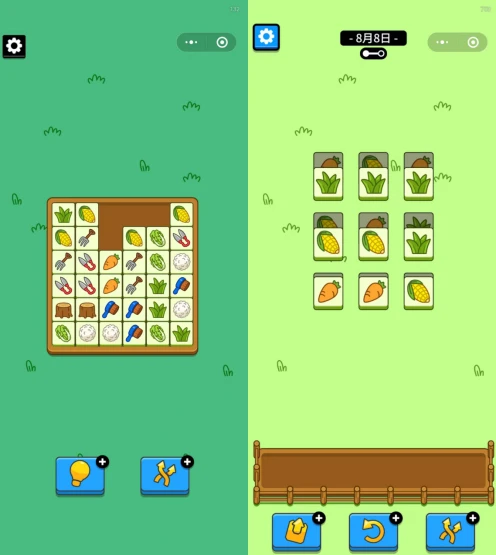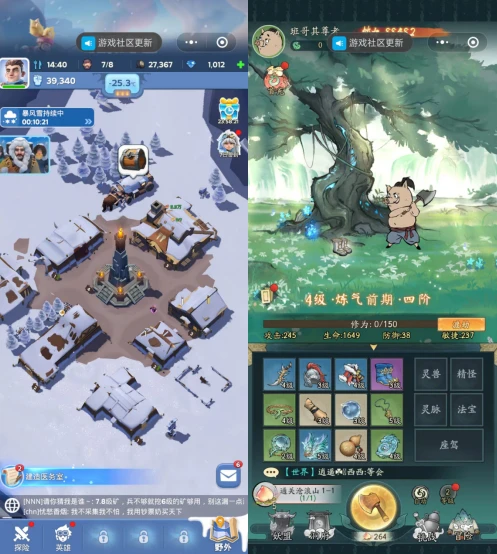Original | Odaily Planet Daily ( @OdailyChina )
Author | Vincent31515173 ( @vincent31515173 )

Telegram's mini-game has become the new traffic center of Web3 since 2024, and Telegram has gradually evolved from an early encrypted communication IM software to a comprehensive platform integrating payment, social, and entertainment.
When seeing words like IM instant messaging, payment, social, and entertainment, as a Chinese, the first thing that comes to mind is definitely the giant of communication and social software, WeChat. Looking at the development paths of both Telegram and WeChat, Telegram is becoming more and more like an "encrypted version of WeChat". In addition to both dominating the function of IM instant messaging, their development paths in their own ecosystems are also very similar: payment comes first, then social graph, and finally forming a comprehensive ecosystem through built-in mini-programs. But in terms of underlying construction, WeChat is a complete product of Web2, while Telegram combines Web2 and Web3.
Currently, WeChat has become a mature commercial complex, while Telegram is vigorously building its own mini-program ecosystem. The recent popularity of the Tap to Earn (click-type mini-games) new model has attracted many developers to flock to Telegram, and in a short period of time, Telegram mini-game clones continue to emerge.
So why not move the existing WeChat ranking and profit-leading mini-programs to Telegram for replication? For this reason, Odaily Planet Daily uses the WeChat mini-game ranking as the data basis to explain the types of mini-programs that are currently suitable for moving from WeChat to Telegram, while the author shares in-depth research on each mini-game, and how Telegram attracts Web3 users through its economic mechanism solutions.
The economic mechanisms mentioned in this article are all subjective deductions by the author, and we hope for everyone's advice.
Traffic monetization is more suitable for the Telegram mini-program ecosystem than recharge monetization
Through communication with the relevant personnel of the domestic WeChat mini-game data detection platform Gravity Engine, the author learned that the current monetization channels for WeChat mini-games are mainly divided into two types—traffic monetization and recharge monetization.
Traffic monetization mainly focuses on the monetization model of games with long-term user retention, that is, inserting incentive ads in the game as a traffic monetization channel, such as clearance games or survival games. When the game cannot progress or requires a high reward, users can achieve their own wishes by watching ads. In this process, the advertisers need to pay traffic fees to the game publisher, and the entire process is the traffic monetization method of mini-games.
In addition, recharge monetization mainly focuses on games that need to attract players to spend money to meet the publisher's revenue. These games need to be very well-made to attract user consumption and recharge, with a lower focus on user online retention rate, and more focus on game types such as hosting and PVP combat.
The following is the data from Gravity Engine, with the data time being August 1st.

Odaily Planet Daily Note: The best-selling list represents the game ranking for recharge monetization, and the most-played list represents the game ranking for traffic monetization.
How should developers of Telegram's built-in mini-games choose the suitable game model? For this reason, the author personally played the above 20 games and found that games with traffic monetization are more suitable for early development on Telegram, while recharge monetization needs to be moved and developed on Telegram later.
How to adapt traffic monetization games to Web3 users
Currently, according to Odaily Planet Daily, some of Telegram's mini-games use the traffic monetization model, mainly manifested in token incentive tasks (similar to Web3 task platforms), such as watching YouTube videos or completing traffic delivery tasks set by the project party.
However, WeChat embeds incentive ad APIs in mini-games and cooperates with traditional ad traffic platforms to enter the product library of the ad traffic platform, thereby obtaining revenue through advertisers placing ads. The development stages of the two in traffic monetization are different, and Telegram's own advertising platform cannot support incentive ad models similar to WeChat mini-games.

Based on the above image, games like "Sheep" are very popular, and "Sheep" has transformed from a single game model to multiple game models, including "Brick" which ranks eighth in the most-played list, are all its built-in games.
These games combine both casual puzzle and strategy game types, are very addictive, and once deeply involved, most users will choose to pass levels through "incentive ads". Or in other words, as the game progresses, the game mechanism will become more and more difficult, to the point where it is impossible to pass the level without watching ads at least 5 times. Most of the games on the most-played list are of this type, grasping the users' competitive psychology and non-recharge psychology, forcing users to earn income by watching ads lasting 30 seconds.
Although these games are easier to develop and have a large traffic, the returns are relatively stable, belonging to a stable income model, and will not have a high source of income unless there is a surge in traffic. At the same time, for Web3 users who are already accustomed to GameFi investment, these games are not very attractive to them, and they are not as attractive as playing mature games.
Therefore, based on these games, the author came up with some demand points more suitable for Web3 users. Taking clearance-type games as an example:
Set token reward mechanisms for each level, divided into three levels based on performance, with different amounts of tokens, to attract players to stay for a long time to earn tokens;
Traffic monetization still exists, and failing to pass a level requires watching ads for revival, thus balancing the commercial model of Web2 traffic monetization and forming a stable cash flow;
The first point is a solution for token supply, providing special props on the token demand side, and these special props can change the situation of the level, forcing users to spend tokens to purchase special props in order to pass the level.
Due to the difficulty of development and game mechanism issues, recharge monetization games are currently not suitable for development in Telegram mini-programs
According to the "WeChat mini-game ranking", recharge-type games are generally divided into three types: PVP mode, AFK mode, and nurturing mode. The development cost of these game types is higher compared to traffic monetization games, and the development speed is slower, with a longer return period. They also require the design of novel game mechanisms and story backgrounds, which is no less difficult than developing an App game.

Especially for games at the top of the ranking, such as "Endless Winter" and "Seeking the Great Thousand", the internal mechanisms of the games are more complex and diverse, and are not suitable for development teams to quickly seize the market, but are more suitable for entering the recharge monetization model after the Telegram mini-program ecosystem is improved and users have game consumption capabilities.
However, if a company is willing to develop such games, it can embed encrypted payments into the game itself, such as using Toncoin, USDT, or other encrypted assets to pay for recharges, which may attract Web3 users. Especially in Russia, Central Asia, and areas with relatively backward Internet, Telegram's mini-programs are a new product for them, and choosing game types or application tools suitable for this type of user group may open up new markets.
Overall, recharge monetization games are not very suitable for the current mini-game ecosystem on Telegram, and such games currently lack the economic model support of GameFi, with most of the issued tokens facing the situation of direct selling, similar to the current plight of GameFi.
Conclusion
Odaily Planet Daily believes that Telegram needs to combine the successful experience of WeChat mini-games, and in the early stages, migrate WeChat mini-games to Telegram to accelerate the development of the ecosystem.
The author also compared the traffic monetization and recharge monetization games and found that it is currently more suitable to introduce WeChat's traffic monetization games into the Telegram ecosystem. Games with traffic monetization models are more suitable for early-stage development on Telegram, while games with recharge monetization models should be considered for migration after the Telegram ecosystem is relatively mature.
At the same time, based on discussions with Telegram developers at Odaily Planet Daily, Telegram's mini-programs support the commonly used JavaScript in China, which can attract many mature Chinese developers to build the Telegram mini-program ecosystem. However, if Telegram mini-programs are to establish smart contracts on TON to guarantee Web3 transaction forms, the development difficulty is relatively high from the perspective of programming languages.
According to the relevant personnel of Gravity Engine, domestic WeChat mini-games are becoming increasingly mature and are facing severe internal competition. Many mature companies are planning to "go global" and build on Telegram as a new social platform with a rich variety of assets, which may become a new gathering place for domestic developers.
In conclusion, Telegram is rapidly growing into an "encrypted version of WeChat", and its mini-program ecosystem development is in full swing, providing developers with vast opportunities and challenges.
免责声明:本文章仅代表作者个人观点,不代表本平台的立场和观点。本文章仅供信息分享,不构成对任何人的任何投资建议。用户与作者之间的任何争议,与本平台无关。如网页中刊载的文章或图片涉及侵权,请提供相关的权利证明和身份证明发送邮件到support@aicoin.com,本平台相关工作人员将会进行核查。




